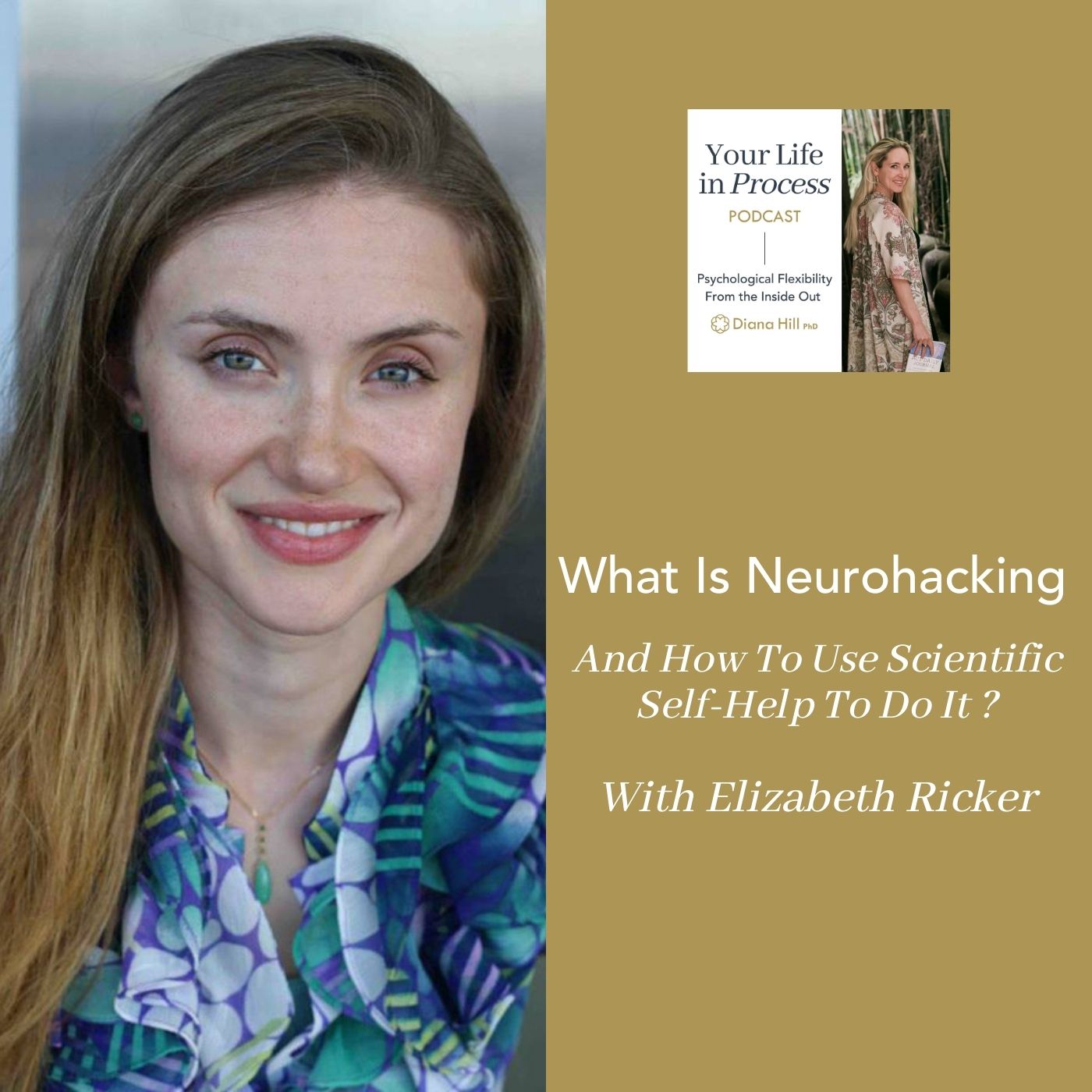Are you interested in learning quick ways to focus better, be more creative, and improve your mood? In this episode, Diana Hill talks with Elizabeth Ricker about how to use science-backed self-experimentation to upgrade your brain. Elizabeth discusses a new type of IQ that includes executive functioning, emotion regulation, learning and memory, and creativity. She also debunks some myths about neurohacking and walks you through a practice you can try out at home to increase your creativity!
About Elizabeth Ricker
Elizabeth R. Ricker is an expert and innovator in brain enhancement. She is the author of “Smarter Tomorrow: How 15 Minutes of Neurohacking A Day Can Help You Work Better, Think Faster, and Get More Done” (Little, Brown Spark/Hachette). Her book was chosen by The Wall Street Journal as one of “12 Books to Start a Smart New Year” and it was named one of 5 “Books That Motivate You to Live Well” by The Hindu (India). Thousands of English-language copies have been sold globally, and translations into Japanese, Chinese, Korean, Romanian, and Russian are underway. Ricker lectures worldwide and consults with Silicon Valley venture capital firms, technology startups, schools, and the Fortune 500. Her work has been featured across the media, such as in Fast Company, the March for Science’s book “Science Not Silence” (MIT Press), and on public broadcast TV in Europe. Ricker received her undergraduate degree from MIT, and her graduate degree from Harvard, and conducted neuroscience research at both institutions.
You can sign up for updates as well as download neurohacking tools and resources at ericker.com.
Key Takeaways
- Scientific self-help is more than just infusing science into self-help.
- There is a lot of diversity in humans brains and the goal of neurohacking is not to make all brains the same
- 4 main areas that you can neurohack with Elizabeth’s method include executive functioning, learning and memory, emotion regulation, and creativity
- It’s important to choose areas to neurohack that have been demonstrated changeable through research and have real-world significance
- Exercise targets every main area of executive function
- The utility and safety of nootropics is questionable
- Placebos and Noocebos are powerful tools in scientific self-help
- You can learn how to placebo yourself
Related Resources
- Download Your Daily Practice for this episode
- Find out what kind of Striver you are and get your free Skillful Striving Toolkit
- Learn More about Elizabeth Ricker
- Read Elizabeth’s Book: Smarter Tomorrow
- Research Article: Give Your Idea Some Legs: The Positive Impact of Walking on Creative Thinking
- Research Article: Placebo Can Increase Creativity
- Read Elizabeth Ricker’s blog Can Therapy and Neurohacking Work Together?
- Learn More About Neurodiversity
- Listen to Ariel Garder, founder of Muse, interview Diana Hill
Diana’s Events
- Reserve your spot in Diana’s Reset and Restore Retreat in Costa Rica in 2024!
- Sign up for Diana’s From Striving to Thriving Summit!
- See Diana at an upcoming event
Connecting With Diana
Thank you for listening to Your Life in Process! Subscribe to the podcast for free on Apple Podcasts, Spotify, Google Podcasts. If you have any questions or feedback you can contact Diana by email podcast@yourlifeinprocess.com or leave Diana an audio message at (805) 457-2776. Follow Diana at YouTube, Instagram, LinkedIn, Facebook, and Diana’s website.
Thank you to the team Craig and Ashley Hiatt. Thank you to Benjamin Gould of Bell & Branch for your beautiful music.
Remember when you become psychologically flexible, you become free.
Episode Segments
- [00:00] – Introduction
- [01:01] – Listener Feedback
- [01:57] – About Elizabeth Ricker
- [03:15] – Diana’s Upcoming Workshops
- [03:39] – What is Scientific Self-Help
- [24:48] – Diana’s Yoga Neurohacking
- [28:53] – Neurohacking with Exercise
- [46:48] – Neurohacking with Nootropics
- [49:57] – How to Placebo Yourself
- [57:09] – Diana’s Summary
- [58:24] – Your Daily Practice
- [59:53] – Connect With The Show

+ show Comments
- Hide Comments
add a comment